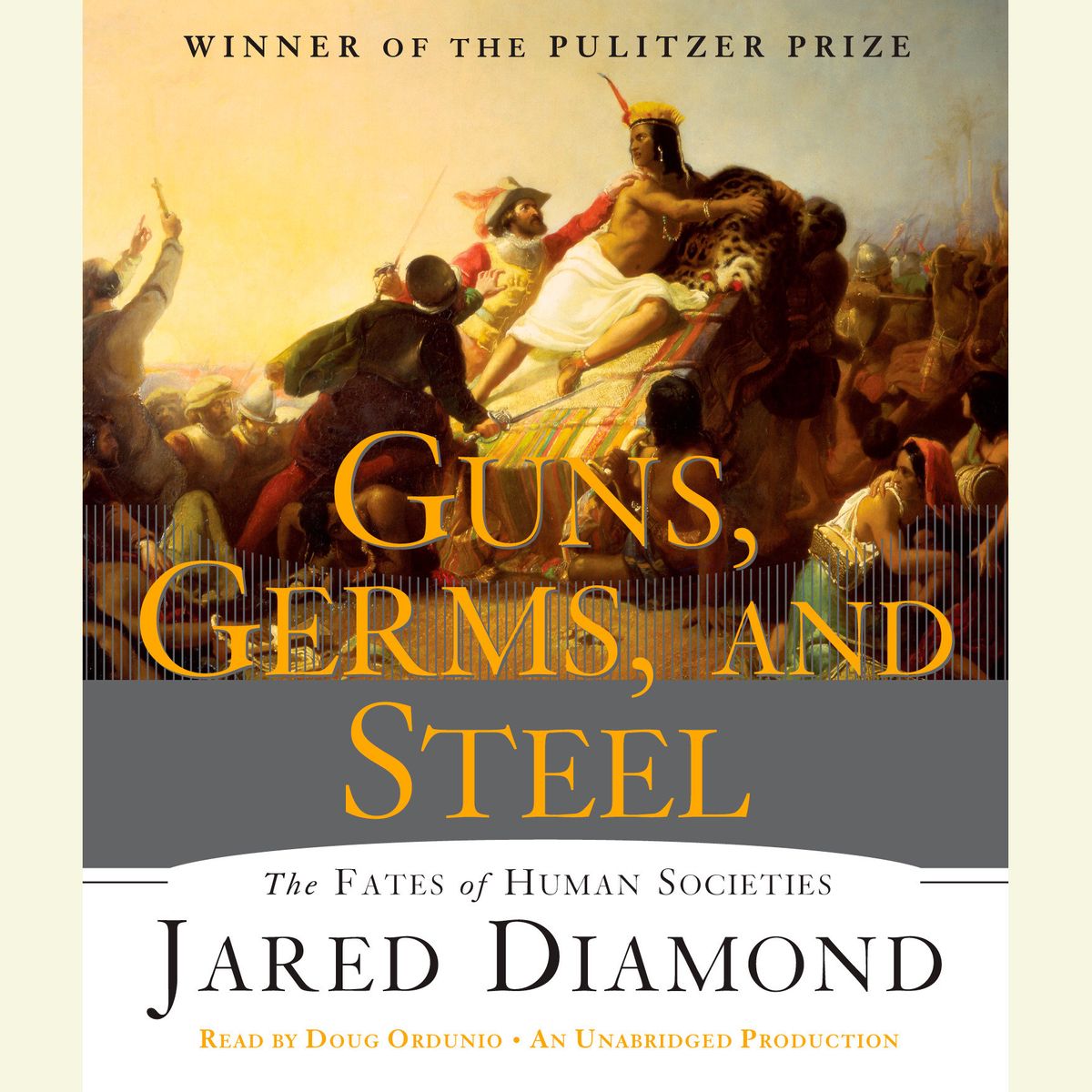I don’t remember how I first heard of the book Germs, Guns & Steel. I was fascinated by it when I read it 8 years ago. It was thoughtful, had lots of data, and built on the history I already knew. I was so inthralled after a few chapters that I started to keep a Google Doc of the main points and interesting ideas in the book. This was around the time I met my wife. We met at a coffee shop. I arrived early and brought that book to read as I waited for her. It was there at a pivotal time in my life.
Summary
If you haven’t read it, it says there is a significant amount of luck involved with the first steps of civilization building. All people from around the globe are similar, but technology and industry can’t develop until certain environmental conditions were met. This is why some civilizations were able to conquer others worldwide during the European colonial period. Not because people are more or less inventive, intelligent or even aggressive than others, but because some had a head start with an unlevel playing field.
Farming changed everything. But it cannot happen if you don’t have enough types of food at hand to settle and have a complete diet. Using animals as beasts of burden increases your output, but isn’t possible if you don’t have animals you can domesticate. Obviously, you need to be smart and inventive enough to figure it out. But all modern humans are smart, going back at least 70 000 years. That’s not the difference. The resources we could use is the difference.
Why I liked it
I really enjoyed it. It logically explanationed why some cultures ended up with a greater capacity for war. There wasn’t any difference in the people. Time and again he shows that as soon as a society met certain conditions it quickly developed along a similar lines. There isn’t any difference in the people. Only the raw materials they had to work with. It wasn’t outlandish, didn’t contradict what I knew, and appealed to my sense that all people are in some sense equal.
The people of the Americas didn’t have the technology to fight off Europeans. That is why they couldn’t have won. It wasn’t their fault and the victory wasn’t about the Europeans being superior. Every area in the world developed farming as fast as it could. Some just had to wait for it to be possible. And they continued to progress on their own or quickly adopt the technology of their neighbours, as the Europeans did. They became more efficient and many developed larger populations. Eventually everyone would have big cities and advanced technology. It was the world that was unfair.
Unlike the environmental determinist who said geography made people lazy or stupid or value different things, this book said all people were very similar. Some were just more privileged than others.
Why I must reconsider
After, I occasionally found criticisms of Jared Diamond’s book. But of the ones I found, many didn’t say he was wrong but expressed concern over how he worded things. Those who did say he was wrong misrepresented what he said. I even watched a video saying that he proposed environmental determinism, which was a concept used by white supremacists. But the summary of the book didn’t match what I recalled reading. So I dismissed the criticisms.
Years after that I found the list. It was a collection of posts making deep and thoughtful criticism of Germs, Guns and Steel. It points out that much of his evidence is wrong, and we now know many things that contradict his views. This was just over a year ago. It’s a short list with very long articles or posts, some written by actual historians.
As I read through the content I found he made mistakes, errors and had inaccuracies in the book. As I read the criticisms I thought, ‘that’s not exactly right’ and ‘that doesn’t matter’ and ‘that’s just a bad example, the larger point stands.’ Until I felt that none of it stood. That the big picture was also wrong. But maybe it was a cognitive bias that switched me. Do the arguments stand a closer look? I’m not sure.
We have a lot of flawed beliefs about history. There is a well reviewed book called 1491: New Revelations of the Americas Before Columbus. It explains that over the last 100 years we have learned a lot about history, and much of what we were taught is not right. My first major introduction to this was a Cracked article about myths about the founding of America. This clickbait article actually gave me the foundation to understand to accept the criticisms of Germs, Guns and Steel. If I hadn’t previously read that article I might not have realized the myths I believed. I could have dismissed these criticism. It helped prime me for when I came across the list.
Even then, it took a lot of reading. It was a lot to take in. I didn’t have much time, and haven’t been able to go over it again. So I’m not well equipped to make the argument that his ideas about livestock, germ theory and details about conquest were wrong. I must dive back into these criticism. Now that I have a better feeling for the breadth of the arguments I can try to approach them and see if they make the same sense I thought I found a year ago.
Steven Pinker, you’re next. I see a lot of the same red flags.
